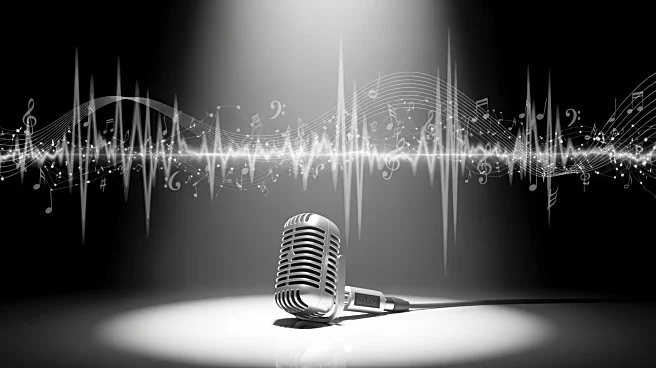What's Happening?
Singer-songwriter Kenny Loggins has requested the removal of his song 'Danger Zone' from an AI-generated video posted by President Trump on Truth Social. The video features Trump in a fighter jet labeled 'KING TRUMP,' dispersing brown material over protestors
in Times Square. Loggins stated that his performance was used without permission and expressed his disapproval of the song's association with divisive content. The video was released in response to nationwide 'No Kings' protests. Loggins emphasized the need for unity and the role of music in bringing people together.
Why It's Important?
The incident highlights ongoing tensions between artists and political figures over the unauthorized use of music. Loggins' objection underscores the broader issue of copyright infringement and the ethical considerations of using art for political messaging. While legal frameworks allow such use if rights holders are compensated, artists often publicly oppose these actions to inform audiences of their stance. This case adds to a history of musicians challenging President Trump's use of their work, reflecting the intersection of art, politics, and public discourse.
What's Next?
The White House has not responded to Loggins' request for removal, instead sending an unrelated image from the film Top Gun. The situation may lead to further legal actions, similar to previous lawsuits filed by other artists against Trump for copyright infringement. The ongoing Hayes lawsuit against Trump, his campaign, and Turning Point Action in Atlanta could set precedents for future cases. Artists may continue to publicly challenge unauthorized use of their work, influencing public perception and potentially prompting changes in how political figures engage with creative content.
Beyond the Headlines
This event raises questions about the ethical use of AI in creating political content and the responsibilities of public figures in respecting intellectual property rights. The use of AI-generated videos for political purposes could lead to increased scrutiny and calls for regulation. Additionally, the cultural impact of such content on public sentiment and the role of music in political movements may be explored further, as artists seek to protect their work from being used in divisive contexts.















